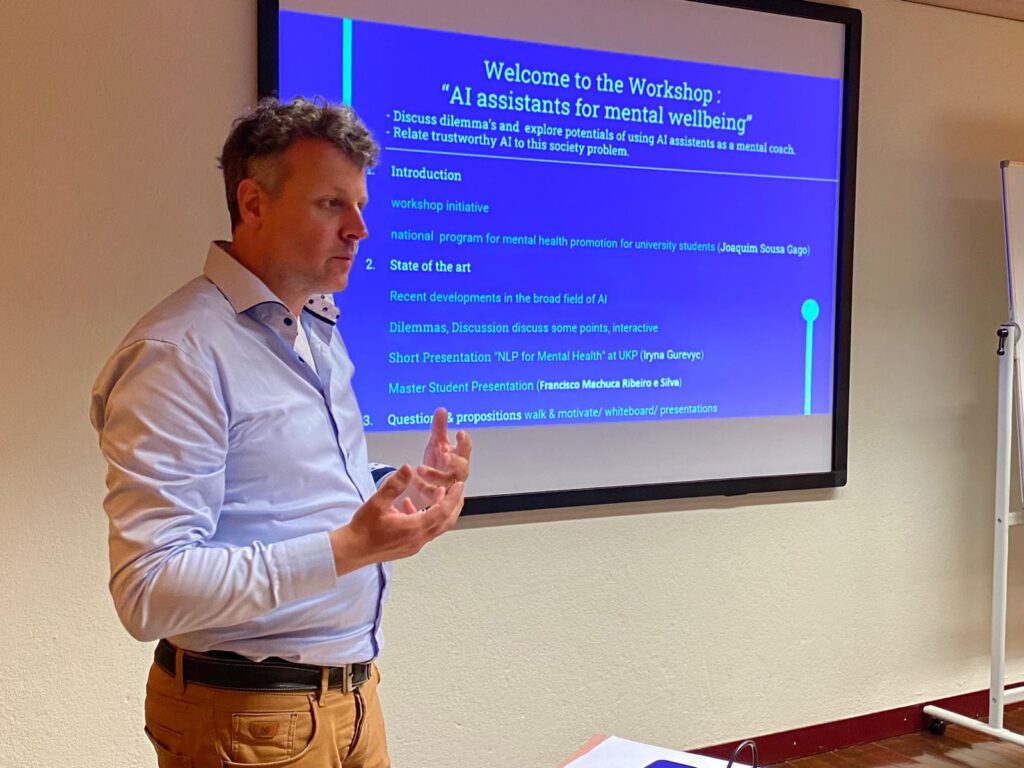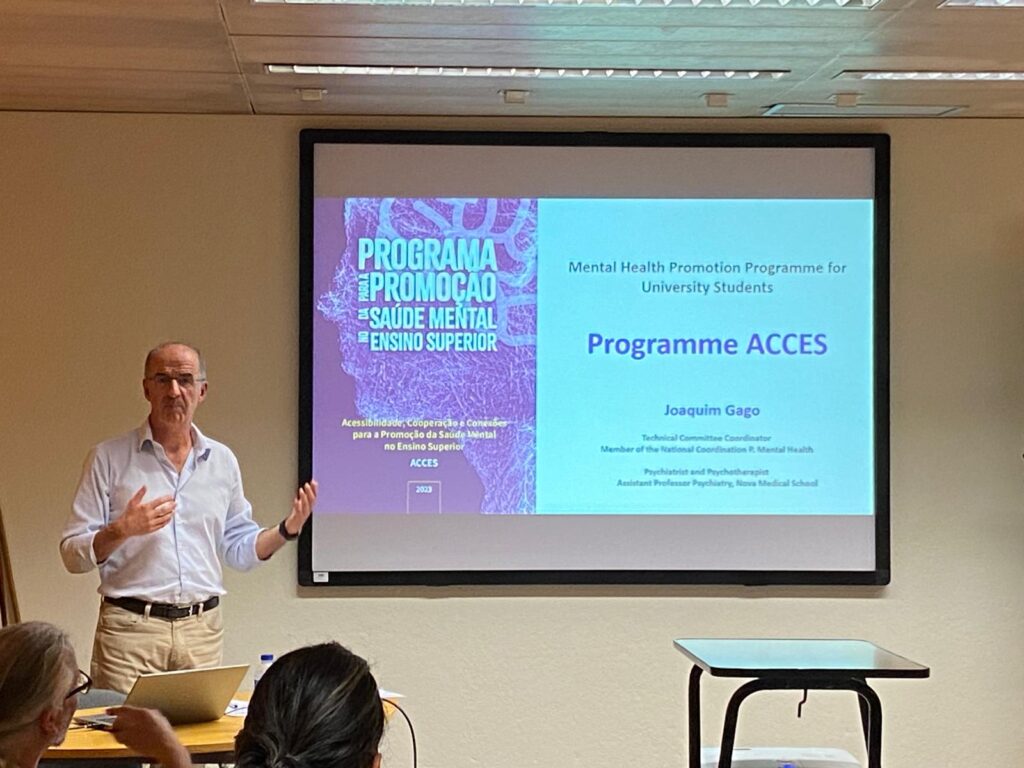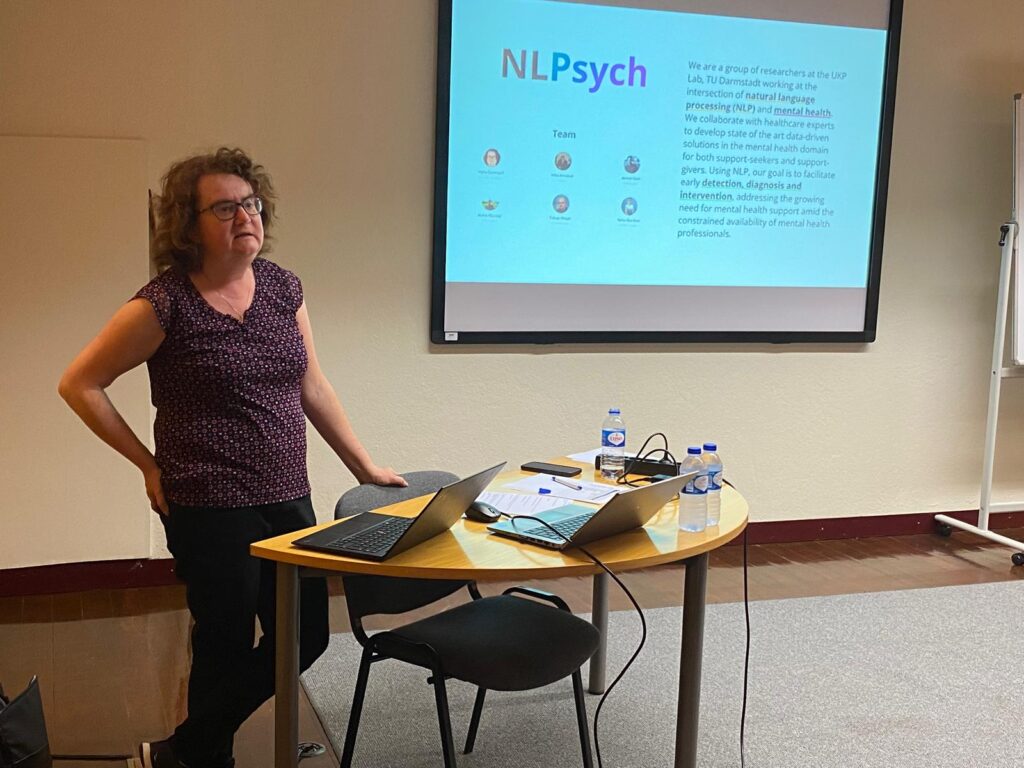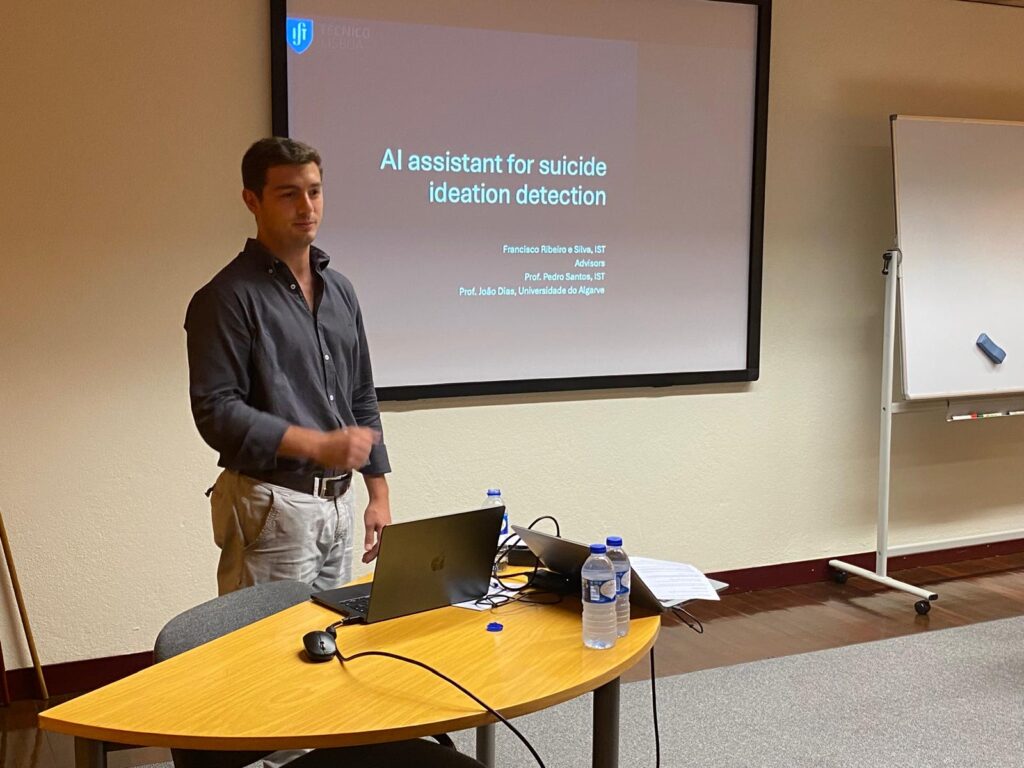At the TAILOR conference in Lisbon, from June 3rd to 5th, 2024, Wico Mulder (TNO), supported by Trine Platou and Carla Pacheco, organized a workshop on AI assistants for mental well-being. The workshop aimed to explore the potential of AI-based digital assistants in the domain of mental well-being, especially for addressing this issue among adolescents.
What follows is a report of what happened during the workshop, with a summary of the activities and some reflections made by Wico Mulder on the topic.
Depression among young people is a significant societal issue. It has many personal victims and high healthcare costs. Depression, individualization, and loneliness are important but unspoken themes among the youth. This is a negative development in our society and has a strong inhibitory effect on our economy.
In a world where the influence of AI technology is increasingly visible, we wonder to what extent digital assistants can help us with this problem. Is it necessary to focus more on ‘offline’ human-to-human connection, or will we work alongside AI in the future?
The initiative for a workshop on this subject arose from meetings between two namesakes, each enthusiastic and proactive in his own field: Wico Mulder, a youth healthcare doctor, and Wico Mulder, an expert in IT and artificial intelligence. With their investigative spirit and intrinsic drive to connect, they are contemplating the use of AI in the domain of mental healthcare.
Last week, I organized the first ‘Connect’ workshop on AI in mental healthcare. This took place during the international AI meeting TAILOR Network of Excellence Centres on Trustworthy AI. The workshop brought together people from the fields of AI and mental healthcare. The introduction was supported by a presentation from Joaquim Sousa Gago, a psychiatrist and psychotherapist at the hospital in Lisbon, and a lecturer at the medical university there. As coordinator of the national program for student mental health, he talked about a method to recognize various stages of mental health in students and the possible interventions that can be taken.




We then discussed several dilemmas. On one hand, there is a need for apps that help monitor patients, just as the Fitbit maps physical efforts. A treating physician can thus better follow a patient. In the case of certain anxiety disorders, a digital assistant in the form of an app can even provide encouraging instructions. The use of digital assistants is interesting given the shortage of human caregivers. Additionally, they can assist with data processing for diagnosis and establishing a personalized treatment plan. On the other hand, the question arises as to what extent digital coaches can truly meet the need for social connection and warm human contact. Shouldn’t the care for someone with mental health issues come from fellow humans?
In our view, we focus on the combination of digital assistants and human caregivers. Even in an AI era, personal development will go hand in hand with forms of human attention and mutual cooperation.
Looking at the development of AI technology itself, we see the rise of advanced chatbots and language models. As of 2024, it is possible to interact naturally with computer systems. Iryna Gurevych, head of the UKP lab at the University of Darmstadt, spoke about this. With her team, she investigates the possibilities of AI language models in the domain of mental healthcare. Algorithms are becoming more advanced, and the possibilities for sharing data safely and controlled are increasing. In light of the TAILOR project, we discussed the theme #trustworthy-AI in this workshop. The influence of European legislation was also addressed (see AI-act, Data-act, TNO healthdataspaces). This focuses on the regulation and reliability of AI applications.
Student Francisco Mr. Silva also gave an impression of his work on AI assistants and suicide. With his assignment, he not only contributes technically but also implicitly to the necessary dialogue among young people. They are close to the problem. It is important to address and discuss the problem as people among themselves, each from their own background and experience. The TAILOR workshop in Lisbon was a great opportunity to do this. It was an example of how different domains of knowledge (Trustworthy AI and mental health) came together to inform and get to know each other.
Wico Mulder – TNO
Thanks to Trine Platou and Carla Pacheco for their organizational support. And TNO for participation in TAILOR.
WM, 20240906
